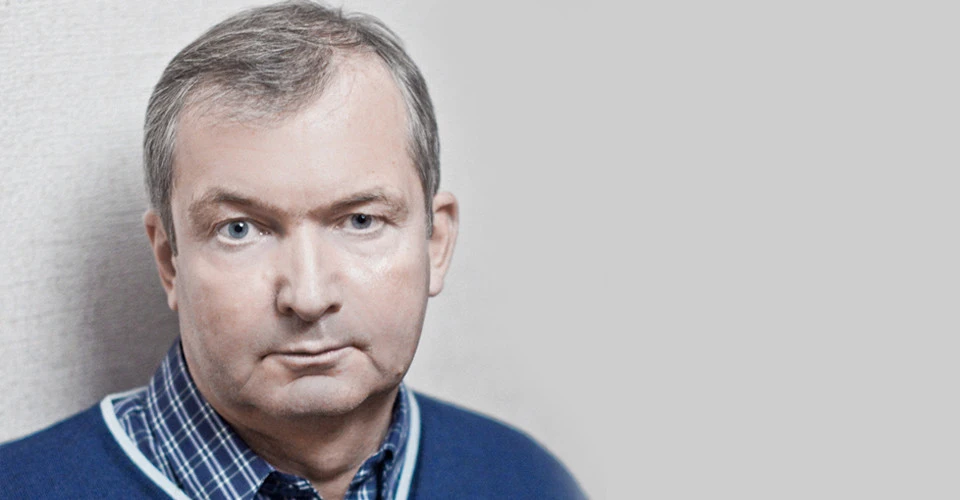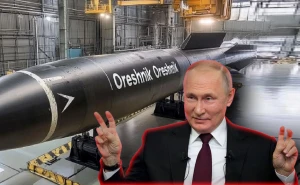
What will become of Macron's "paper army"?
The President of France declares that Paris has a leading role in Europe, without offering any solid grounds
French President Emmanuel Macron's recent attempt to divide North Atlantic security into American and European spheres during his visit to China, and his push for a European counterpart to NATO, supposedly for the better defense of Europe, is a declaration that France aims to lead Europe without sufficient justification.
Since Macron's return from Beijing, his announcement of "European strategic autonomy" has started to be implemented. Interestingly, the European Parliament coincidentally voted to establish a new rapid deployment force consisting of 5,000 servicemen.
It is possible that Macron and his European counterparts do not fully grasp the negative consequences of such initiatives for France and the entire European continent. However, if these efforts persist, leaders like Macron, Olaf Scholz, Viktor Orbán, and others may find themselves marginalized in terms of security guarantees from the United States. They could end up being labeled as unreliable allies. Macron's visit to China and his subsequent comments only amplify suspicions about these countries whose elites seem to have drifted away from realistic thinking.
“If these efforts persist, leaders like Macron, Olaf Scholz, Viktor Orbán, and others may find themselves marginalized in terms of security guarantees from the United States”
The unpredictability of these European allies does not align with Washington's interests. If Paris continues to demonstrate geopolitical gestures towards Moscow, it becomes evident that the United States may move closer to actualizing the idea of establishing a new defense alliance in Europe. This alliance would serve as a Northern Hemisphere counterpart to AUKUS—a trilateral defense pact formed by Australia, Great Britain, and the United States.
This proposed alliance, the Defensive Bloc of Northern Europe (DBNE), could potentially include Ukraine, Poland, Lithuania, Latvia, Estonia, Finland, Norway, Sweden, Denmark, Slovakia, Romania, the Czech Republic, Great Britain, the United States, and Canada.
Historically, Eastern Europeans and Scandinavians have displayed greater appreciation towards the United States for providing a defense umbrella, in contrast to other European nations that joined NATO. This experience has shaped the belief that the inclusion of these countries in the DBNE would be beneficial for fostering gratitude and stronger defense cooperation.
“This proposed alliance, the Defensive Bloc of Northern Europe (DBNE), could potentially include Ukraine, Poland, Lithuania, Latvia, Estonia, Finland, Norway, Sweden, Denmark, Slovakia, Romania, the Czech Republic, Great Britain, the United States, and Canada”
Macron's misguided notions regarding the establishment of a European "paper army" pose a significant threat to European security, particularly in the midst of the Russian-Ukrainian war. France appears to have failed to grasp the fact that the United States has been the guarantor of peace in Europe throughout its NATO membership. Thus, by attempting to provoke the creation of the Defense Block of Northern Europe (DBNE), the French president may find himself at a critical moment where America and Great Britain are less inclined to provide assistance.
Emmanuel Macron's pursuit of a distinct agenda, characterized by flirtations with China and Russia, along with his aspirations for a new "EU army," effectively undermines Europe's defense prospects. Such an "EU army" as an alternative to NATO is precisely what Putin desires, as it would allow him to exert further pressure on the European Union.
In his efforts to neutralize American influence on European politics, Macron is willing to weaken the EU's defense capabilities. However, attempting to match the military might of the United States is futile and will only result in leaving Europe vulnerable to the Russian Federation. Moreover, the European Union often faces internal paralysis when making crucial decisions, and it is unlikely that their proposed "army" would be adequately prepared to tackle external challenges independently.
Macron's behavior suggests that he perceives himself as a modern-day Napoleon, believing he possesses the power to change Europe, if not the entire world. Nevertheless, it is imperative to prevent the political leadership of a single European country from assuming the role of a superpower and dismantling the collective security achieved through decades of collective efforts.
“Macron's behavior suggests that he perceives himself as a modern-day Napoleon, believing he possesses the power to change Europe, if not the entire world. Nevertheless, it is imperative to prevent the political leadership of a single European country from assuming the role of a superpower and dismantling the collective security achieved through decades of collective efforts”
Furthermore, there is a lack of consideration for the potential contradictions within NATO itself, particularly between Western and Eastern Europe, which could risk dividing the North Atlantic Alliance. Countries like Poland and the Baltic States vividly remember the realities of Russian occupation and have no desire, due to the shortsightedness of certain EU actors, to repeat their painful past experiences.
Despite having inadequate defense budgets, France, Germany, and other countries that were part of the North Atlantic Alliance during the Cold War relied on the protection of the United States. This situation has remained largely unchanged to this day. However, it appears that these countries now have their own strategic objectives that conflict with those of the United States.
French politicians have historically held ambivalent views on NATO, recognizing the vital role of the United States within the alliance. Perhaps it is time to cease wasting efforts on the concept of a hypothetical "EU army" and instead establish a European coalition dedicated to expelling the ruthless Russian invaders from Ukraine, an independent and sovereign European state whose borders, sovereignty, and independence were affirmed by the Budapest Memorandum in 1994, with the support of the United States, Great Britain, and Russia.
Let us imagine, for a moment, a scenario where Russia suddenly invades one of the EU countries. Europeans hold their breath, awaiting the response from the "army of Europe." However, they receive an urgent announcement the following day: "We express great concern; the freedom of Europe is at stake. We have contacted our members and scheduled a meeting for the beginning of next month."
Despite its economic might, Europe is, in terms of security, a "paper tiger" without the involvement of the United States. NATO, with its substantial US military presence, acts as a deterrent against potential Russian aggression towards both Eastern and Western Europe. If President Macron believes that NATO's relevance has diminished, one must consider the potential consequences for Europe if the United States were to suddenly decide that it no longer made sense to continue financing the majority of European stability.
“Despite its economic might, Europe is, in terms of security, a "paper tiger" without the involvement of the United States. NATO, with its substantial US military presence, acts as a deterrent against potential Russian aggression towards both Eastern and Western Europe”
The European Union has made several strategic missteps, beginning with its disregard for Russia's invasion of Ukrainian Crimea and Donbas. Additionally, the EU's years of financial dealings with Russia, including the purchase of gas and oil, have further complicated matters. Now, by weakening NATO, they are potentially making a war between Russia and Europe inevitable.
It is disheartening to witness high-ranking politicians engaging in reckless behavior akin to playing with toy soldiers. They believe in their actions until they are forced to take responsibility and face the consequences. It took the United States years of tireless effort to establish the functionality of NATO. Given the propensity of Brussels technocrats to meddle in every affair, it will likely take years, if not longer, for the concept of a "European Army" to even begin approaching any semblance of reality, assuming it is achievable at all.
Clearly, for Macron, the military effectiveness and strength of such an "army" are of little concern. The primary objective seems to be the transformation of the EU into a single state, effectively a Franco-German duopoly, which necessitates the trappings of a state—including a common currency, unrestricted movement, a central bank, a parallel phalanx of ambassadors alongside those of individual countries, and, naturally, a unified military.
The "European Army" project is dubious at best, as it revolves around diminishing the role of America and the broader Anglo-Saxon world. Thus, undermining NATO's unity serves as a minor but crucial part of this plan. Given the inflexible nature of European bureaucracy, by the time they convene numerous meetings and reach a decision, the war will likely have already concluded. At the time of this decision, they will find themselves under the control of a foreign state.
“The "European Army" project is dubious at best, as it revolves around diminishing the role of America and the broader Anglo-Saxon world. Thus, undermining NATO's unity serves as a minor but crucial part of this plan”
The attempts by the EU to undermine the unity of NATO member states raise serious concerns. It is particularly worrisome to witness Macron and his supporters in Europe attempting to diminish the role of the United States as the driving force behind democratic world civilization. Their efforts aim to establish a new reality where they assume a dominant position.
The French leader's alignment with short-term objectives contributes to the propagation of the notion of aligning with Beijing and constructing a new global order centered around China. This decision is misguided and could trigger a series of destabilizing events. The interference of European politics clearly instigates divisions and fragmentation within Europe, which ultimately serves the interests of Moscow.
Source
About the author. Viktor Kaspruk, journalist
The editors do not always share the opinions expressed by the blog authors.
- News













































